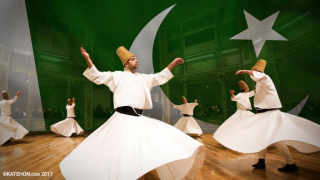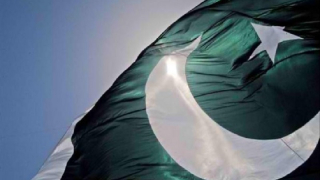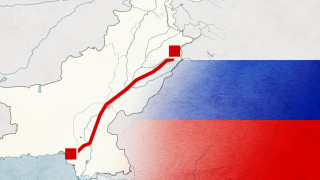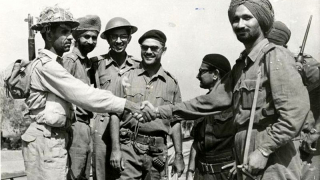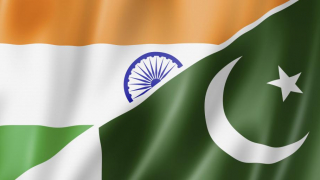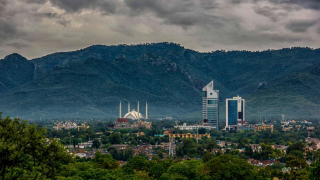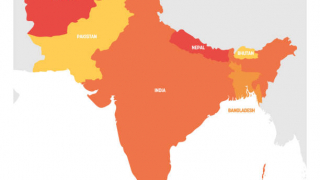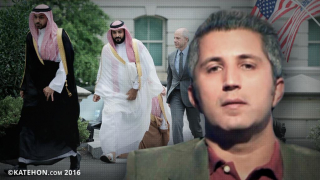Propaganda Warfare to Make Pakistan Politically Unstable
11.02.2020
Propaganda warfare against Pakistan is a main agenda of our enemy which is being used by our foes as an endeavor to subvert some sections of Pakistani society against the state. The common hybrid war methodology is being used for subverting Pakistani bloggers/journalists, human right activists against the state. Our foes try to damage Pakistan’s sovereignty and stability by supporting their so called campaigns for freedom of expression, free speech and missing person’s issues. Its long history of left wing, people from NGO’s, journalists, and so called human right activists that leave Pakistan and seek asylum abroad by projecting false allegation on Pakistan and its security forces on mainstream media. But their allegations without support of evidence have always rejected by UN and other reputed international organizations of the world. People of Pakistan especially the youth love the country and its security forces that’s why they always defended Pakistan on every forum to defuse false propaganda of enemy.
In these days, above discussed scenario is being created by the forces inimical to Pakistan, which want to achieve their ulterior motives by creating unrest in the country and disturbing its stability. In this context, linking of issues of missing persons, freedom of expression and free speech are also an attempt to facilitate left wing anarchists in Pakistan and diverting attention from across the border terrorism activities of India. This is a clear and present danger for Pakistan and should be taken as a tactic against Pakistan in the 5th generation warfare spectrum.
Pakistan is the most misunderstood country in the world and the phenomenon of terrorism and religious extremism, arguably, is a leading factor in distorting its image on the global level. But in reality Pakistan as a front line state in the war on terror has suffered the most in men and material. But lamentably our allies and western countries look doubtfully at our endeavors, doubt our commitment to the cause at hand and decidedly remain oblivious to our national and strategic interests in the region. Most of the anti-Pakistan paraphernalia is being prepared and distributed from outside Pakistan. So, it is very difficult to take any action against them. The foreign intelligence agencies from foreign land are doing all this to sponsor this fifth generation warfare against Pakistan.
International media with its all-permeating power and unfettered global outreach is also feverishly engaged in maligning Pakistan and soiling its image among the comity of nations. The Belgium-based non-governmental organization EU Disinfo Lab report says that it has found over 265 fake local news sites in more than 65 countries that are managed by one ‘Indian influence network’. These are behind anti-Pakistan propaganda globally.
Under the prevailing circumstances it is absolutely essential for the government, besides relying on the state-to-state diplomacy, also accord top priority to the efforts to create a better understanding of Pakistan’s position and its image internationally. In reality, Pakistan has a vibrant media landscape; among the most dynamic in South Asia. Majority of media in Pakistan is privately owned. Pakistan has around 300 privately owned daily newspapers and more than 100 private TV Channels compared to state owned 5 TV channels that show Pakistani media enjoys freedom of expression and free speech rights. Along with it, the emergence of an independent judiciary and a free media in Pakistan are indeed epoch making developments. Likewise the strides taken towards gender equality and empowerment of women are also very positive developments.
According to Dawn (Pakistan’s leading newspaper), tourism in Pakistan has increased by 317% since 2014, a figure which is easy to believe, especially when you see the large number of travel influencers and content creators who have been promoting tourism in Pakistan recently.
Therefore and, inevitably, the internet is today filled with all sorts of opinions about traveling in Pakistan, some of them being particularly accurate, while others are poor and written by travelers who just spent a few days in the country, claiming that Pakistan is one of the safest countries in the world or that they felt very safe during their visit.
In nutshell, the advocates of free speech have missed the more fundamental difference between freedom of expression as a human right and freedom of expression as a tool for violation of a nations’ sovereignty. The key problem is confusing the two facets of freedom of speech and rather than fighting for Martin Luther King’s form of civil rights movement, the international pundits supported by their Pakistani so-called human rights activists have started to drawn comparisons of their struggle to universally acclaimed movements. In fact, Pakistan Army, the state organ, fighting the terrorists restored the writ and sovereignty of Pakistan. So in so it gave civilians the freedom to live their lives freely without any fear from the extremist laws set previously by terrorists. The constitution of a country is supreme and human rights struggles have to contain themselves to legal laws of the nation rather than breaching other fundamental rights and laws of the sovereign state.


